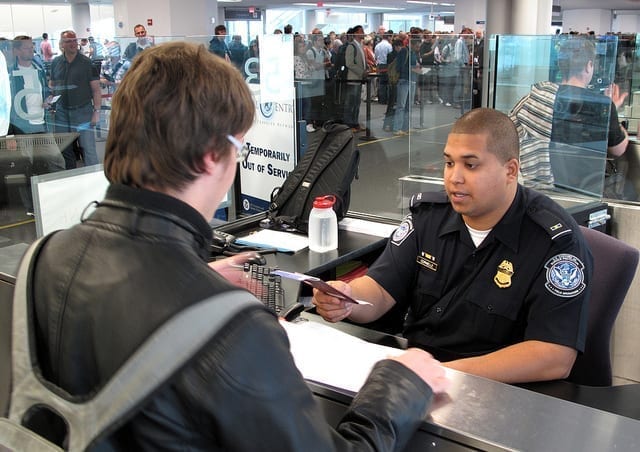An American Muslim is suing U.S. Customs and Border Patrol, alleging officials took her iPhone and copied its data without good cause.
Rejhane Lazoja, 39, says she was stopped at Newark Liberty International in February. Accompanied by her 6-year old daughter, Lazoja was returned home to the United States from Switzerland.
The suit, filed on behalf of Lazoja by the Council on American-Islamic Relations, claims that border agents took the woman’s iPhone after she refused a request to unlock it.
In an affidavit recounted by Newsweek, Lazoja said a Customs official “asked me to unlock my iPhone, but did not state a reason for me to unlock my iPhone.”
“Since there was no stated reason for me to unlock my iPhone,” Lazoja said, “I refused.”
Customs and Border Patrol allegedly kept the Muslim woman’s cell phone and SIM card in custody for 130 days. After close to half a year had passed, Lazoja’s iPhone was returned without any explanation.

“While defendants returned Ms. Lazoja’s cell phone 130 days after it was seized, they refuse to state what they did with her personal data, what third parties her personal data was shared, and if, let alone when, they will return her data,” says the suit.
Requests to delete her data went unanswered. Lazoja says agents have kept her personal information on file, refusing to tell her when they might delete it.
That, says CAIR, raises concerns over privacy. The Council has suggested that Lazoja—who wears a hijab, or Islamic headscarf—had taken pictures of herself “in a state of undress.”
The Council’s argument is considerably less conventional that it may sound. “State of address,” according to CAIR, means Lazoja’s taken pictures which simply show her without a hijab.
“Lazoja wears the hijab as an expression of her Islamic faith, covering her hair in front of men who ae not relatives,” CAIR says.
“CBP’s retention of such photos only compounds the trauma of this warrantless invasion of her privacy,” says the suit. “Additionally, CBP may share this same data with local and other federal law enforcement agencies.”
Aside from faith, CAIR Legal Director Albert Fox Cahn said the seizure was unlawful and may have violated Lazoja’s Fourth Amendment rights.
“The Trump administration needs to understand that our border is not a Constitution-free zone,” Cahn said in a statement. “As the U.S. Supreme Court has recognized, there is nothing more invasive than searching and copying the data on our smartphones. These phones track our location, our conversations and even our passing thoughts.”
Cahn, reports Newsweek, voiced his suspicion that Customs and Border Patrol may have targeted Lazoja on account of her visible Islamic faith.
“Muslim travelers should not be subjected to this warrantless electronic dragnet simply for practicing their faith,” he said.
The CBP has refused to issue any definite comment. A spokesperson instead said that, “All travelers arriving to the U.S. are subjected to CBP inspection.
“Failure to provide information to assist CBP may result in the detention and/our seizure of the electronic device,” he said. “All persons, baggage, and merchandise arriving in, or departing from, the U.S. are subject to search, search and detention.”
Sources
Muslim woman says border cops stole data from her phone
MUSLIM WOMAN SUES CBP AFTER BORDER AGENTS SEIZE IPHONE FOR 130 DAYS


Join the conversation!